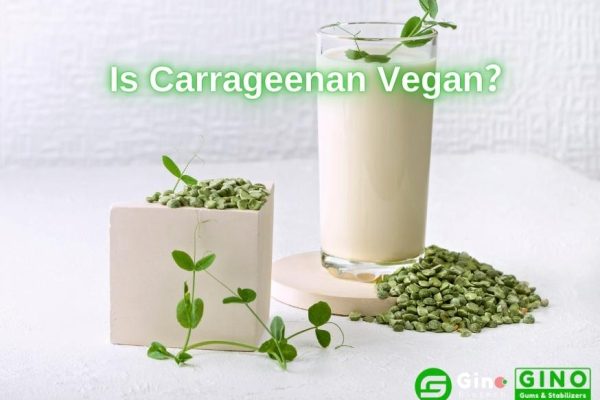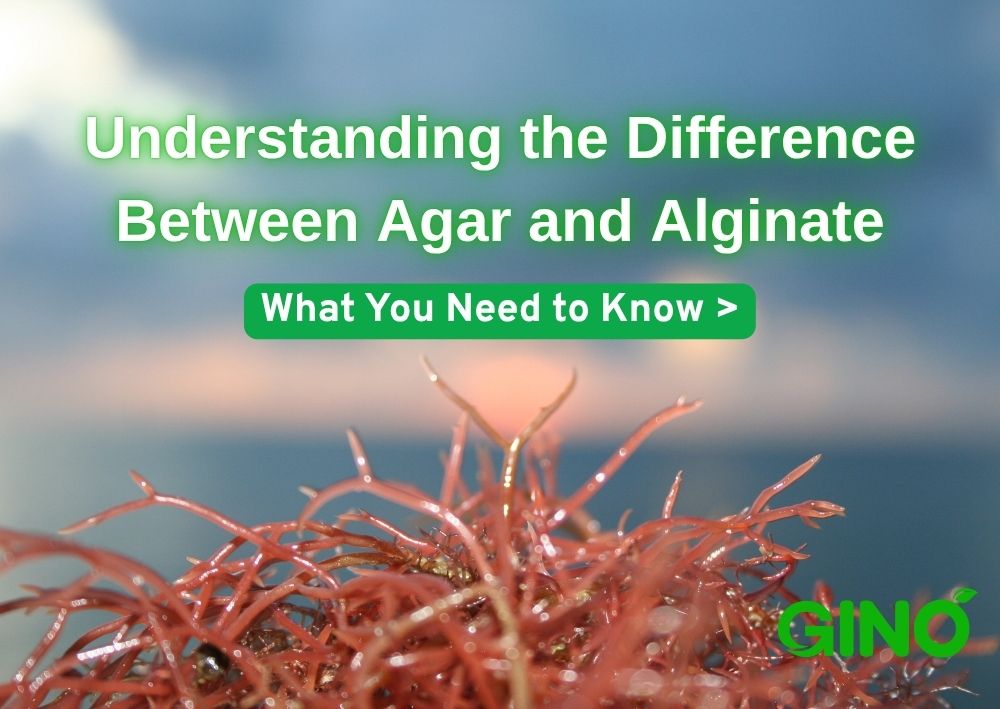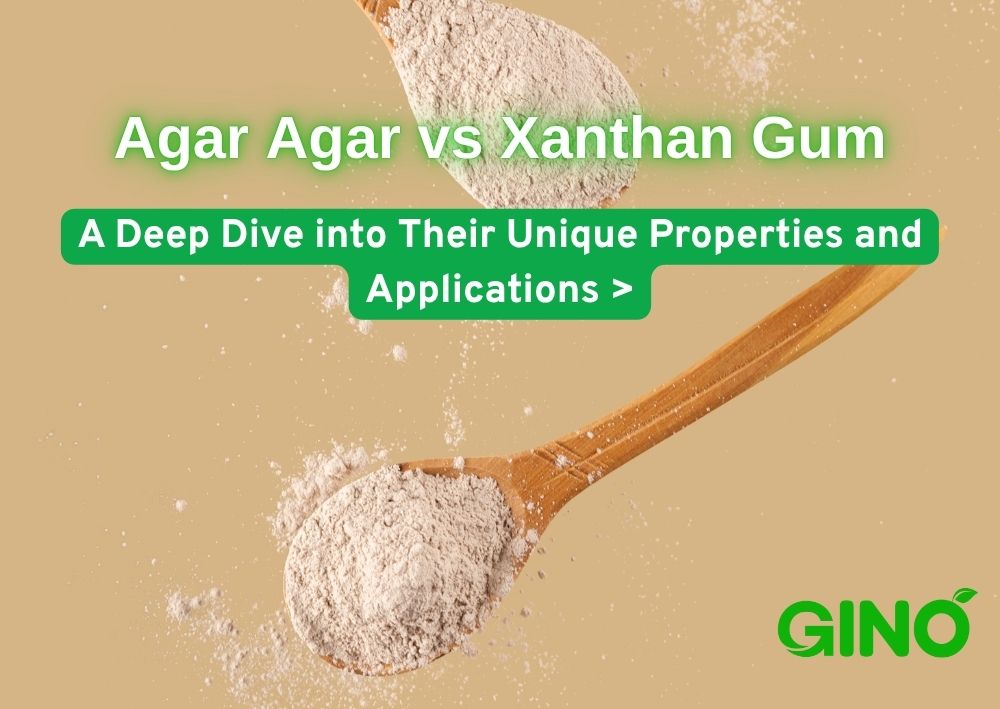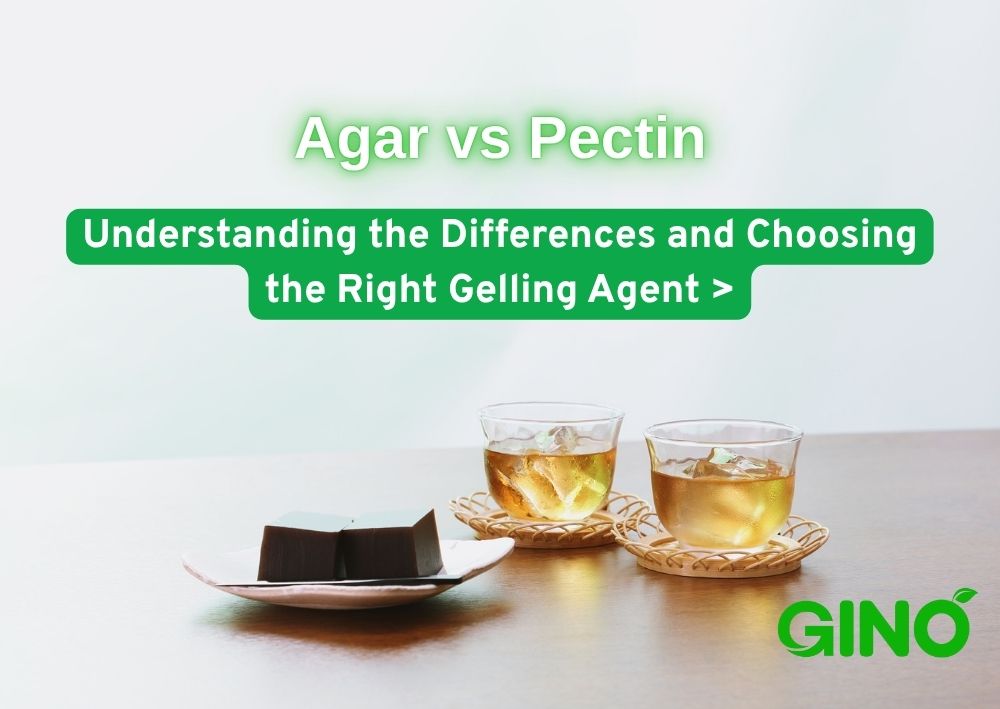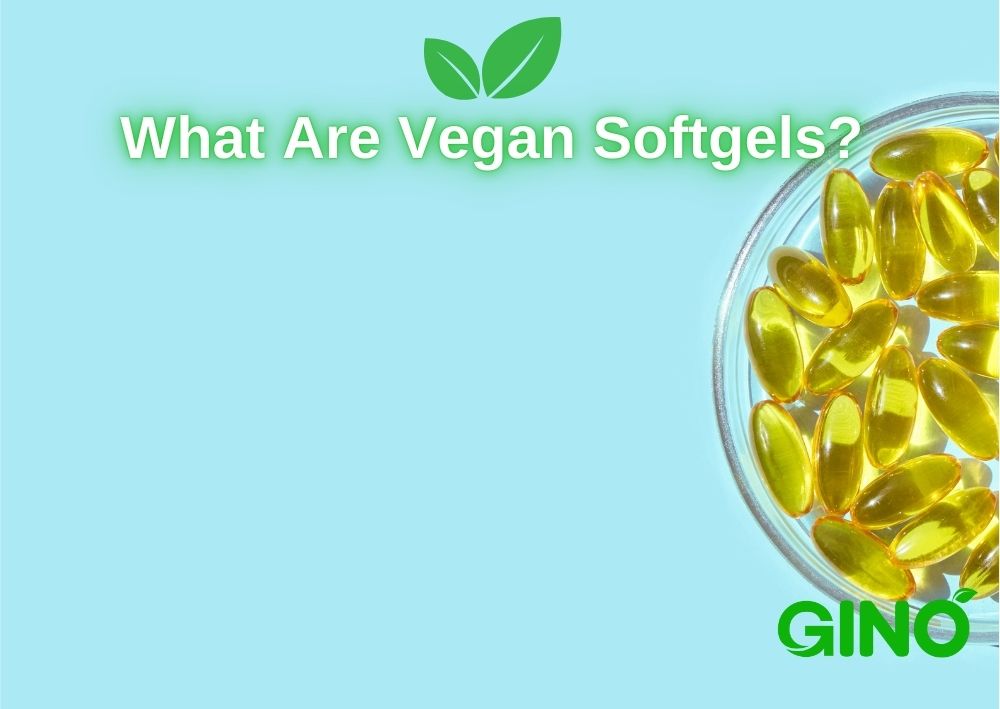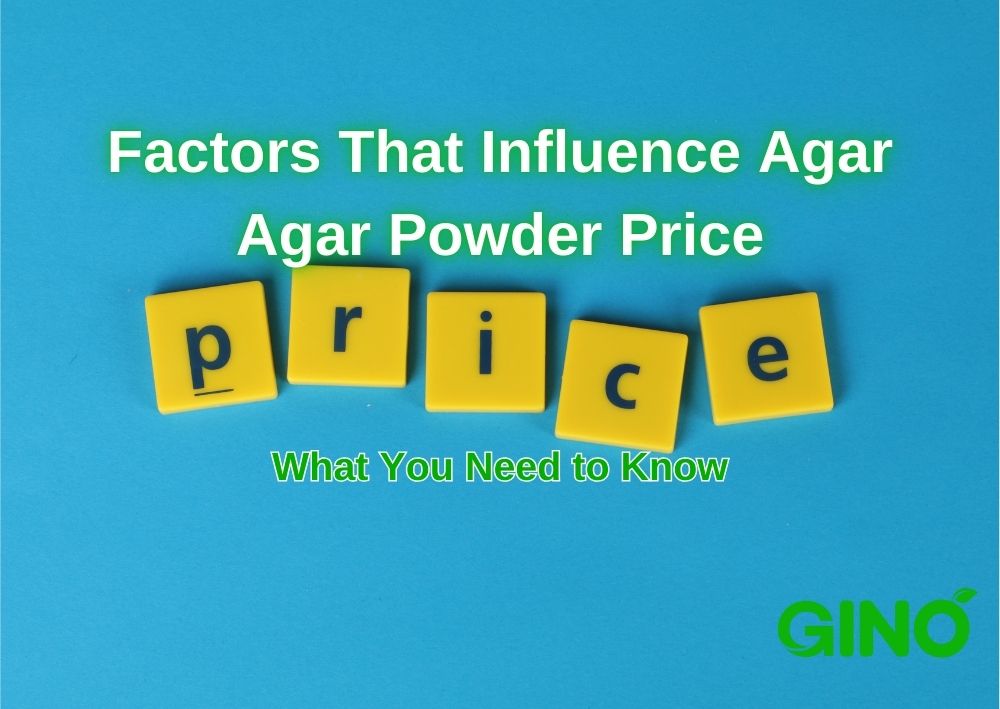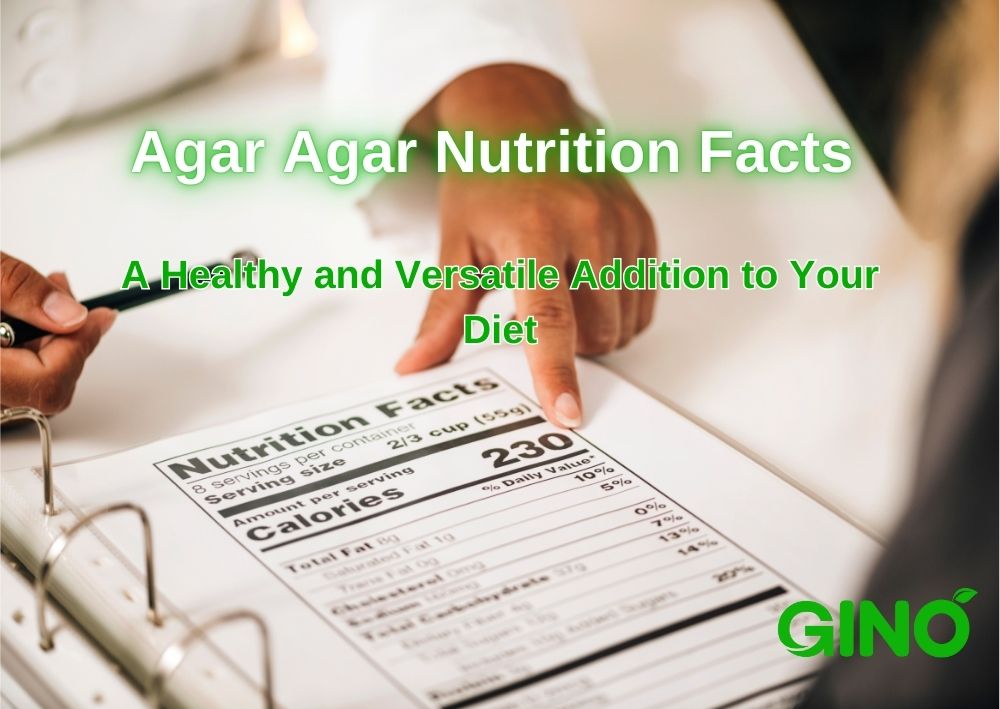Carrageenan vs Gelatin: An In-Depth Comparison of Sources, Types, Properties, and Uses
Carrageenan vs Gelatin
Carrageenan vs Gelatin: A Comprehensive Guide
The comparison between carrageenan vs gelatin is essential for understanding the distinct advantages and limitations of these two popular gelling agents. This guide will explore their sources, types, properties, uses, and religious considerations, providing a detailed analysis to help you make informed decisions for your food products.
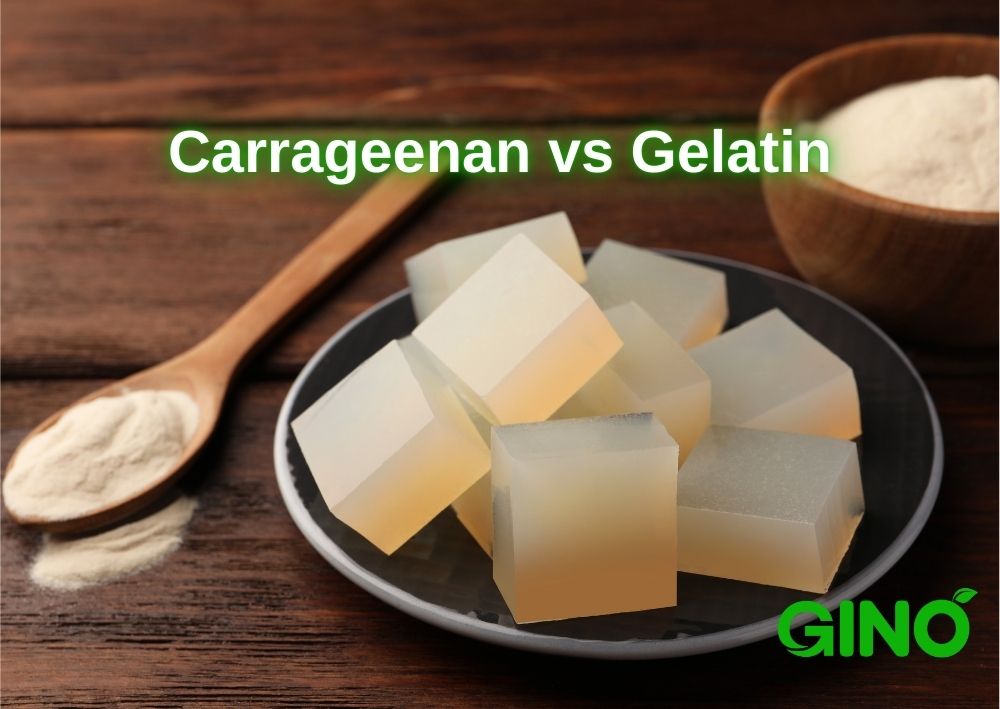
1. Source and Origin
Carrageenan: Carrageenan is a hydrocolloid extracted from red seaweed, specifically from species such as Kappaphycus alvarezii and Eucheuma denticulatum. These seaweeds are mainly cultivated in coastal regions of Southeast Asia, including the Philippines and Indonesia. As a plant-based ingredient, carrageenan is suitable for vegetarian and vegan diets, making it an increasingly popular choice in the food industry.
Gelatin: Gelatin is derived from animal collagen, extracted through the boiling of skin, bones, and connective tissues of animals like pigs, cows, and fish. Gelatin is classified into two main types based on the source:
- Skin Gelatin: Sourced from pigskin or cowhide, this type of gelatin is commonly used in confectionery and pharmaceutical products.
- Bone Gelatin: Derived from cow bones or fish bones, bone gelatin is often used in high-end culinary applications and pharmaceuticals.
2. Types and Varieties
Carrageenan: There are three main types of carrageenan, each offering distinct properties:
- Kappa Carrageenan: Forms firm, brittle gels, particularly in the presence of potassium ions. It is widely used in dairy products like cheese and puddings.
- Iota Carrageenan: Produces soft, elastic gels, especially when combined with calcium ions. It is often used in jellies and soft desserts.
- Lambda Carrageenan: Does not form gels but acts as an excellent thickener and stabilizer, commonly used in sauces, dressings, and plant-based milk.
Gelatin: Gelatin is categorized based on its source and bloom strength, with the following key types:
- Pigskin Gelatin: Commonly used in candies, marshmallows, and gummy products due to its firm gelling properties.
- Cowhide Gelatin: Utilized in capsules, desserts, and some dairy products.
- Bone Gelatin: Often preferred in culinary applications like aspics and haute cuisine, offering a more refined texture.
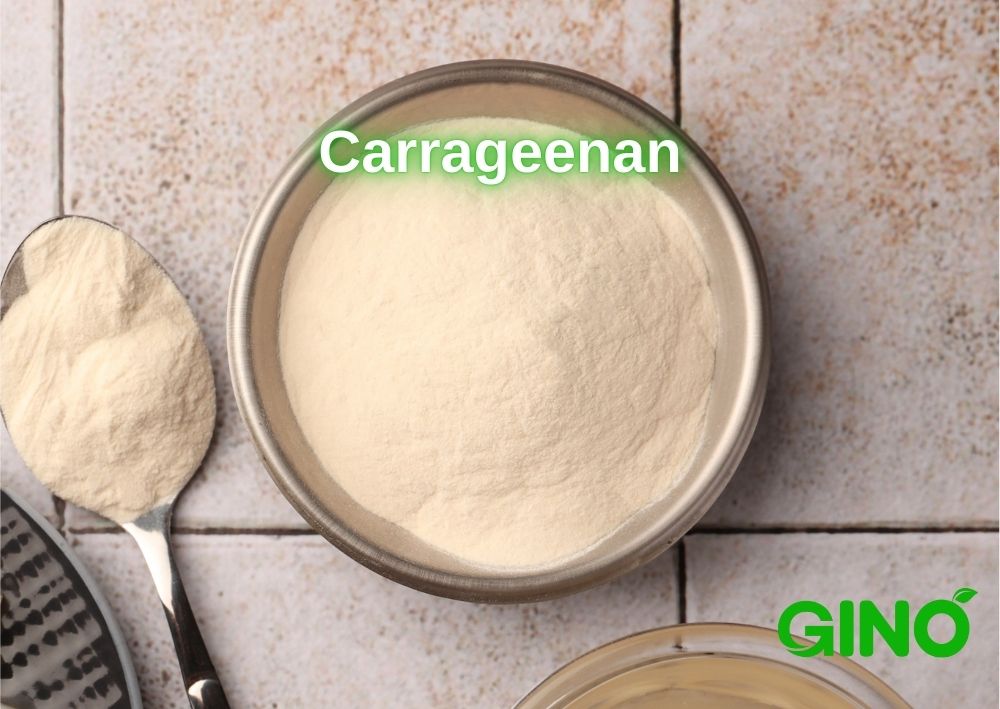
3. Properties and Performance
Carrageenan:
Gelling Ability: Carrageenan forms gels at lower concentrations and offers a range of textures from soft to firm, depending on the type used.
Heat Stability: Carrageenan is highly heat-stable, making it ideal for products that require high-temperature processing, such as sterilized dairy products and ready-to-eat meals.
Thermoreversibility: Gels made from carrageenan are thermoreversible, meaning they can melt and reset, similar to gelatin.
Gelatin:
Gelling Ability: Gelatin forms a thermoreversible gel that melts in the mouth, providing a smooth and delicate texture in products like gummy candies and desserts.
Heat Stability: Gelatin is sensitive to high temperatures, which can cause its gels to break down, leading to a loss of texture and stability in products exposed to heat.
Texture: Gelatin’s unique ability to form a soft, elastic gel makes it a preferred choice in confections and jellies. However, this property is compromised at higher temperatures.
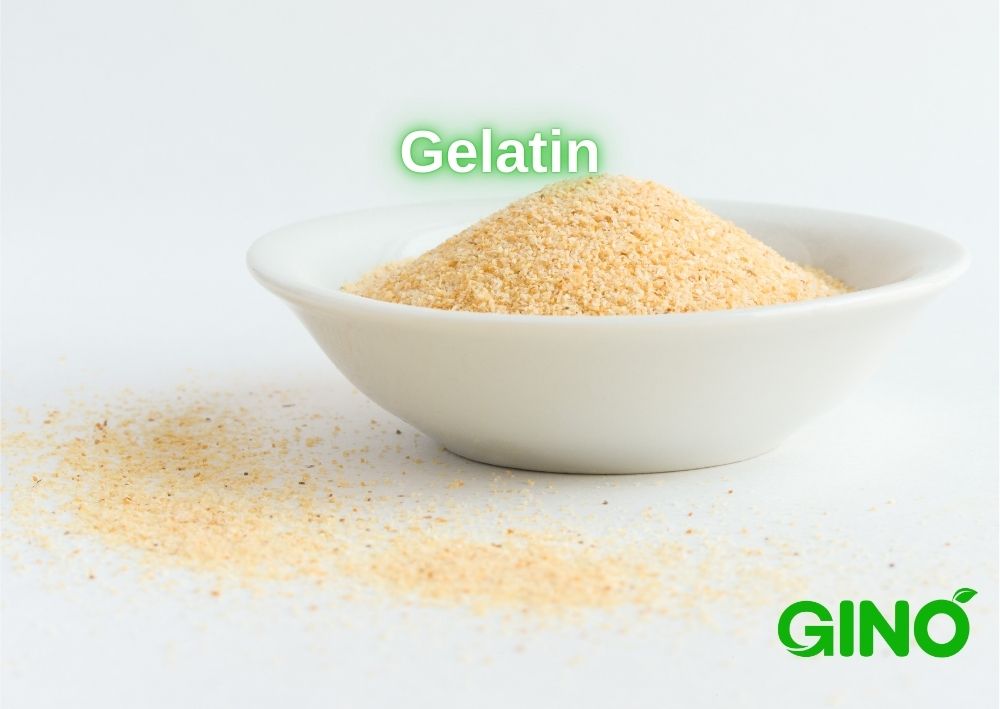
4. Uses and Applications
Carrageenan: Carrageenan is a versatile hydrocolloid with applications across multiple industries:
- Food Industry: It is widely used as a stabilizer, thickener, and gelling agent in dairy and non-dairy products such as ice cream, yogurt, plant-based milk, and sauces. Carrageenan is also used in meat products to improve texture and moisture retention.
- Cosmetics and Personal Care: In cosmetics, carrageenan acts as a thickening and stabilizing agent in products like lotions, creams, shampoos, and toothpaste, providing a smooth and desirable texture.
- Household Products: Carrageenan is used in air fresheners and other household products for its gelling properties, helping to control the release of fragrances over time.
- Pharmaceuticals: It is employed in pharmaceutical formulations for controlled drug release and as an ingredient in topical gels and ointments.
- Scientific Research: In research laboratories, carrageenan is used as a medium for cell culture and in the formulation of various experimental gels and suspensions.
Gelatin:
- Food Industry: Gelatin is a popular ingredient in confectionery items like gummy candies, marshmallows, and gelatin desserts due to its unique gelling properties. It is also used in dairy products like yogurt and as a clarifying agent in beverages.
- Pharmaceuticals: Gelatin is widely used in the production of capsules and tablets, providing a biocompatible material that dissolves easily in the body. It is also used in medical applications like wound dressings and blood plasma substitutes.
- Beauty and Health: Gelatin is an ingredient in beauty products aimed at improving skin elasticity and hair strength, as well as in dietary supplements promoting joint health.
5. Religious and Dietary Considerations
Carrageenan: As a plant-based ingredient, carrageenan is suitable for vegetarian, vegan, kosher, and halal diets. It aligns with the growing consumer demand for ethical and sustainable food products.
Gelatin: The animal origin of gelatin poses significant challenges for dietary and religious observance. Gelatin is not suitable for vegetarians or vegans and may be restricted in kosher and halal diets unless it is specifically sourced and certified. This limitation can significantly reduce its applicability in certain markets.
Conclusion
The choice between carrageenan vs gelatin ultimately depends on your product’s specific needs, consumer preferences, and dietary requirements. Carrageenan stands out for its plant-based origin, versatility, and heat stability, making it a suitable alternative for various applications, especially in high-temperature environments. Gelatin, while unique in its textural properties, may be less suitable due to its heat sensitivity and dietary restrictions. Understanding these key differences will help you select the best gelling agent for your formulations.
As a leading supplier of 100% plant-based hydrocolloids, we offer a wide range of carrageenan products tailored to meet various food application needs. However, we do not supply gelatin, as our focus is on providing high-quality, sustainable, and ethical ingredients that cater to the growing demand for plant-based alternatives.
Contact Our teamRecent Posts

We are a biotech company specializing in the research, development, and commercialization of innovative and technological food additives hydrocolloids Agar Agar, Carrageenan, and Tailor-Made Stabilizer Solutions.
With the extended know-how and experience in the research, application, and use of Hydrocolloids, we could provide one-stop-shop customized solutions perfectly matched to the needs of our customers.
Our products cover the needs of the Meat, Dairy, Bakery, Confectionery, and other industrial sectors.




